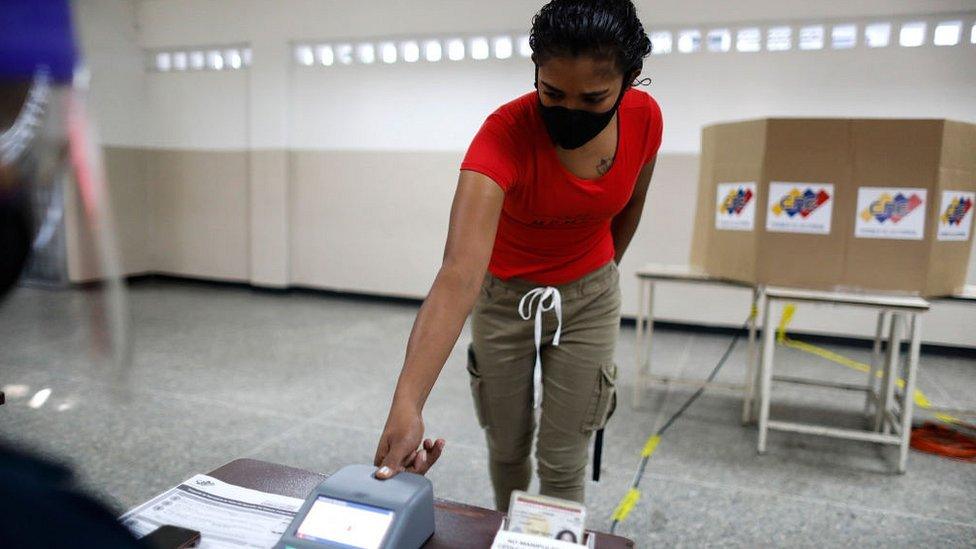Venezuela migrants: 'Legal status changes everything'
- Published
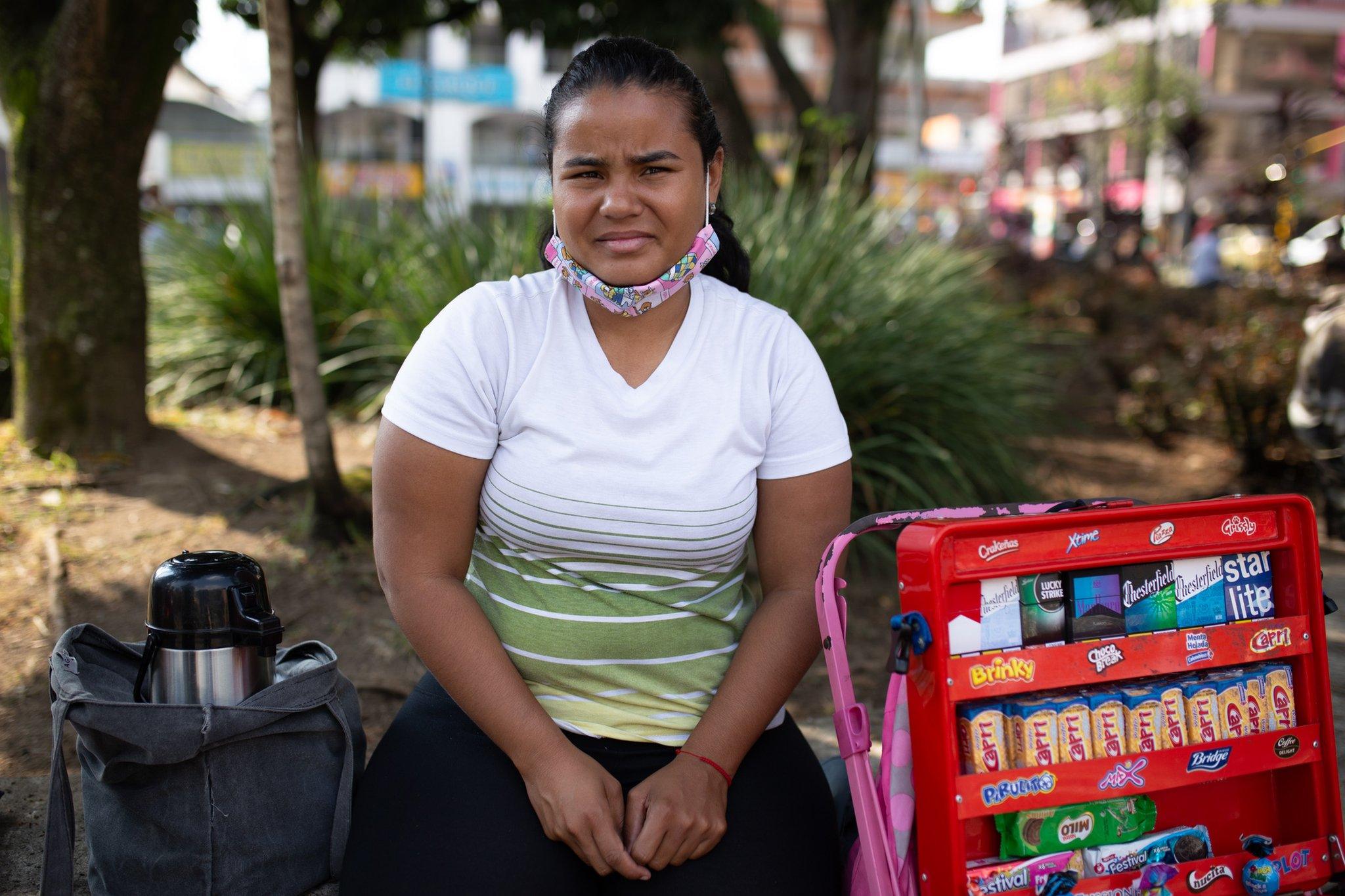
Danexi Andrade left Venezuela so she could earn enough to feed her son
For the second consecutive year, Danexi Andrade has not been able to celebrate her son's birthday with him.
The 24-year-old fled the economic and political crisis in her home country of Venezuela at the end of 2019, leaving her toddler behind to be cared for by his grandmother.
Like many of the estimated 5.4 million people who have fled Venezuela in recent years, she left for neighbouring Colombia with high hopes.
What drives someone to cross South America on foot?
She had plans to get a job to send money home to feed her son - and eventually earn enough for him to join her.
But without documents, Ms Andrade could not find steady work. She currently earns little more than $5.50 (£4) a day selling coffee and sweets on the streets of Colombia's second-biggest city, Medellín.
"I can't really survive on what I earn, because I have to pay rent and pay for food," she says sitting next to a pink stroller in which she keeps stacks of sweets and thermos bottles filled with coffee. "Each day it gets harder."
A turn for the better
But now Ms Andrade is among nearly one million migrants without papers in Colombia who will be granted protected status for up to 10 years.
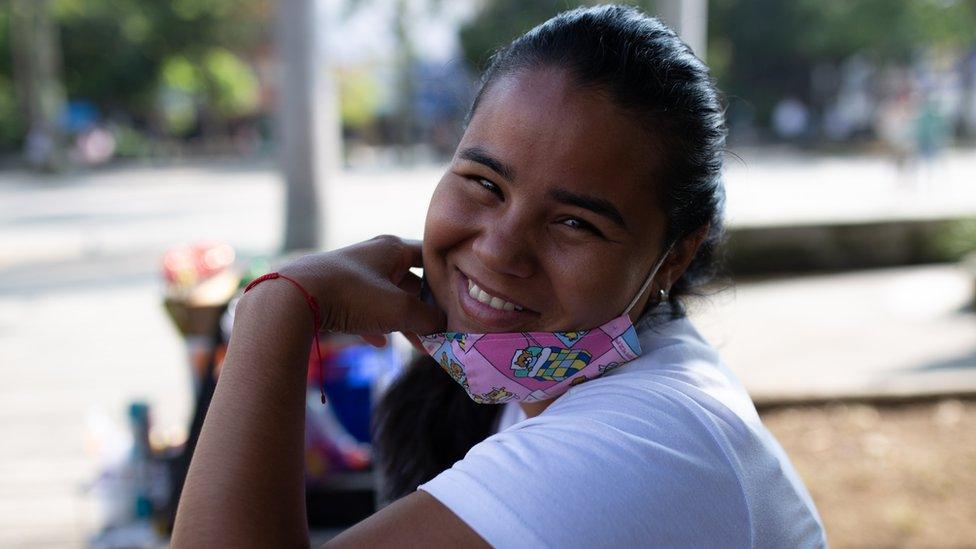
For Danexi Andrade, the decision could mean being reunited with her five-year-old son
The surprise announcement was made by President Iván Duque on Monday and applies to undocumented Venezuelan migrants living in Colombia before 31 January 2021.
It also means that hundreds of thousands of migrants already legalised will not have to reapply for temporary permits or visas.
Crucially, the new rules will allow migrants to work legally and access health and education services.
"As we take this historic and transcendental step for Latin America we hope other countries will follow our example," the president said in a speech.
For Ms Andrade, the move has brought hope roaring back. "To be legalised, that will change everything," she says.
"I'll be able to find work. Everything will be different," she adds, explaining that her priority is to send money home to feed her now five-year-old boy and to eventually be reunited with him.
Millions have left
The Venezuelan exodus is one of the largest mass migrations in the world, fuelled by shortages of fuel, food and medicines as well as violent repression by the government of President Nicolás Maduro.
Neighbouring Colombia has received around 1.7m migrants, more than anywhere else in the world.



Because it is virtually impossible to be issued with a new passport in Venezuela and even getting expired ones extended can take many months, there are many migrants leaving the country without them.
According to Colombia's migration authority, there are currently 966,000 undocumented Venezuelans in Colombia who will now be able to legalise their status.
United Nations High Commissioner for Refugees Filippo Grandi, called the move "the most important humanitarian gesture" in the region in decades.
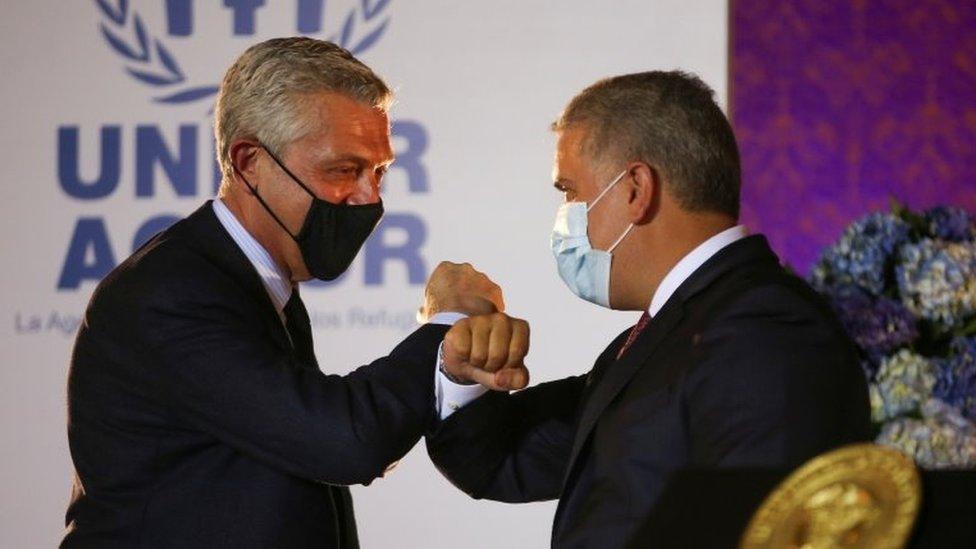
Filippo Grandi (left) welcomed the decision by President Duque (right)
Arles Pereda, who leads Colvenz, a group representing Venezuelans in Colombia, said the decision could not have come at a more pressing time and could transform the lives of some of those hardest hit by the Covid pandemic.
Colvenz helps Venezuelan migrants who arrive penniless to integrate and access jobs, legal services and food.
Mr Pereda says that the number of people seeking help has increased as the pandemic hits the poorer population hardest.
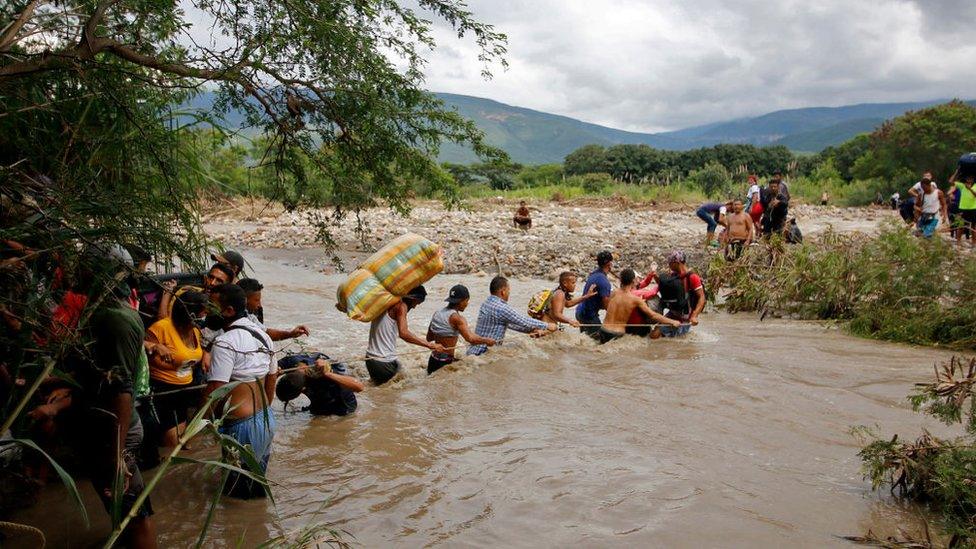
With border crossings closed due to Covid, migrants have been taking alternative routes
He says that life as an undocumented migrant can feel "like being a ghost". "But now, they [the migrants] have this great sense of relief because they can have a better life."
The Colombian government's approach toward arriving Venezuelans has been radically different from other countries in the region such as Ecuador, Peru and Chile, which have set up barriers to migration.
In January, Peru sent military tanks to its border with Ecuador to stop migrants - many of them Venezuelans - from crossing into the country, leaving hundreds stranded.
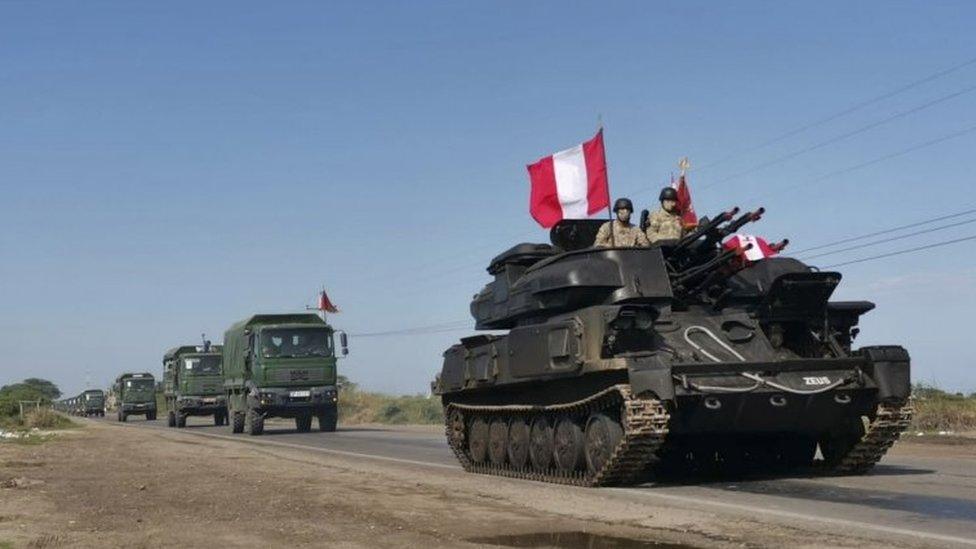
Peru has sent tanks to its northern border
The Colombian government has been more welcoming, providing Venezuelans with temporary work permits and border-crossing cards - even before Monday's announcement. Under the new rules, migrants who enter the country legally in the next two years can also apply for temporary protection.
Challenges ahead
No one doubts that the move will throw up challenges. Colombia already has millions of its own citizens displaced from internal conflict and faces economic and health crisis due to the Covid pandemic.
On its long border with Venezuela, public health and education systems have been hampered by the heavy migratory flows.
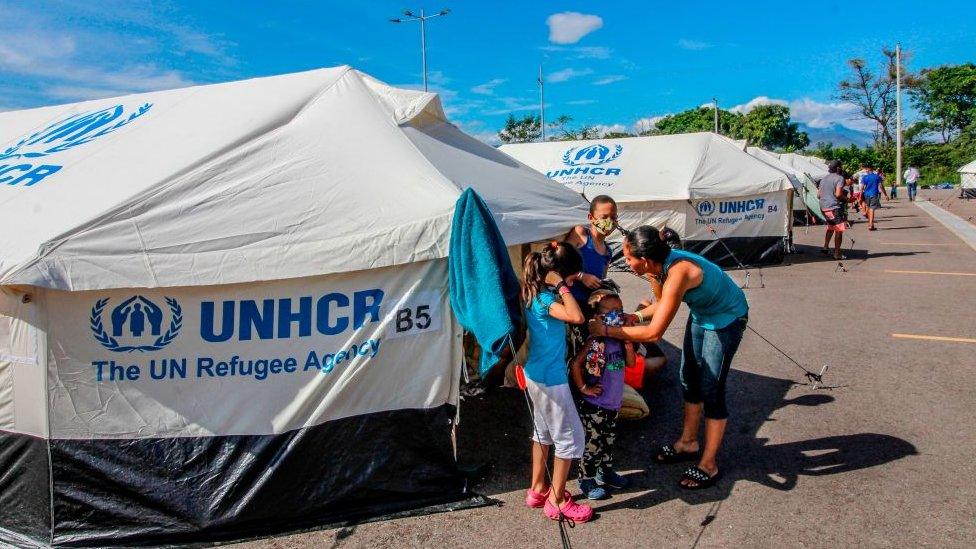
The UNHCR has set up tents on the Colombian-Venezuelan border
Colombia's government has asked for international support, pointing out that the Venezuelan exodus is one of the most underfunded mass migrations in recent history.
International aid funds designated for Venezuelan migrants are minuscule compared to those set aside for people fleeing Syria and Sudan.
And that is unlikely to change, according to Sergio Guzmán of Colombia Risk Analysis.
The director of the political risk consultancy firm says the Colombian government is "on the right side of history", but he does not think that the move will translate into extra international funds. "I don't see a very generous international community."
But migrants like coffee vendor Danexi Andrade look positively toward the future.
After pouring a cup of coffee for a customer, she muses that she hopes she can get a job legally and thinks of her son's next birthday.
"I hope that next year, we can be together," she says.
Related topics
- Published14 December 2020
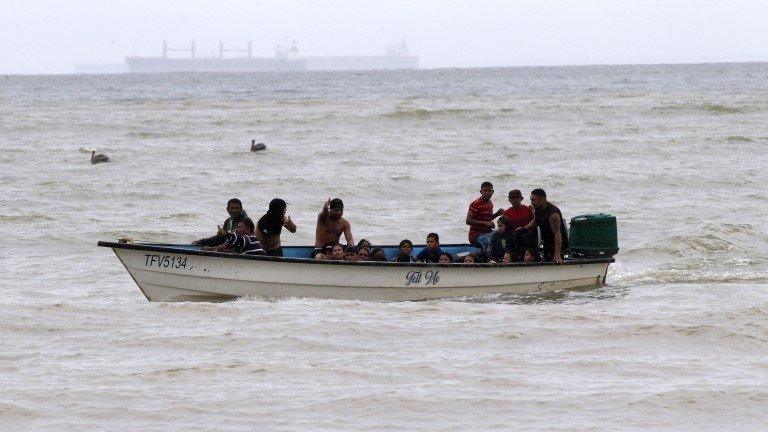
- Published7 December 2020
